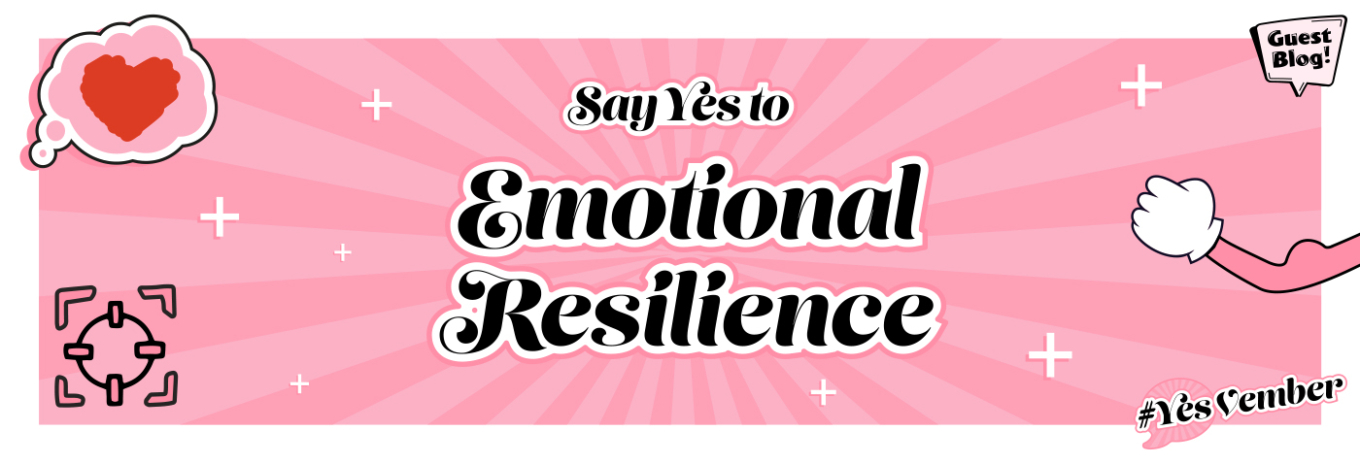According to a recent Harvard study, we spend around 47% of our time lost in thought, rather than focusing on what we’re doing.
These thoughts are often helpful. But when we’re tired, busy or stressed, our internal chatter sometimes becomes too loud. We replay our issues, problems and negative emotions over and over without dealing with them constructively. This hampers our ability to make progress or confront tough issues just when we need it the most.
To make matters worse, our internal discourse can run out of control before we’re even aware of it. We need ways to pause, step back and jump off our train of thought.
By creating space for our thoughts and emotions, we can better recognise unhelpful thought patterns, increase our resilience and begin to shift the soundtrack in our mind.
Here are four approaches to help turn down the volume of your internal chatter.
Detach from your thoughts with mindfulness
Andy Puddicombe, the former Buddhist monk and co-founder of the Headspace app, compares our thoughts to cars passing on a busy road. Rather than calmly watching the cars go by, we tend to become unsettled. We jump into the road and try to stop them – or even chase a few.
Mindfulness helps us stay on the side of the road: observing those thoughts and emotions as they pass by. It’s not about banishing them, Puddicombe explains, it’s about recognising them. Then they don’t stick around as long, or bother us as much.
As Daniel Goleman, author of Emotional Intelligence, says:
“The minute you name the emotion, you shift the focus of your brain to the part that can handle it.”
By practising mindfulness we can break into our wandering thoughts and create space in our minds. And it can be done anywhere, for any amount of time. One way is simply to focus on your breathing. Another is to pay attention to what you’re experiencing through your senses.
Puddicombe recommends doing this in natural breaks in your day, such as when you eat your lunch, or brush your teeth. Simply turn your attention to what you can feel or hear during these times. Try being mindful for one short activity every day for a week. Then next week, add another.
Mind racing? Use your own name
Professor Ethan Kross has spent his entire career researching the internal conversations people have in their minds. He’s found that the way we talk to ourselves can make a big difference to our wellbeing. In Chatter, he outlines how simple tools can help us create distance in our minds to establish a broader, calmer perspective.
One easy but effective technique is simply to use your own name in your internal conversations. Kross discovered that people who talk to themselves using ‘I’ had an emotionally-charged, often negative monologue:
“I can’t do this. I’m no good at public speaking. I’m going to look stupid…”
People who talk to themselves using the third person ‘you’ or their own name, however, had a more supportive and rational dialogue: “Dave, you’ll be fine. You’ve done loads of presentations before. No one cares how you’re going to look…” This leads to improved performance under stress, wiser thinking and less negative emotion.
Kross also recommends achieving distance by imagining you’re giving advice to a friend experiencing the same problem as you. You can then apply that advice to yourself.
Tame your night-time chimp
For many of us, night-time is prime time for our internal chatter. With little else to distract us, negative thoughts can spiral out of control – both when we’re trying to go to sleep, and when we wake in the night.
According to Professor Steve Peters, author of the bestselling The Chimp Paradox, our inner chimps are largely to blame.
Peters’ chimp model simplifies the mechanics of the mind into three interacting systems: the chimp, the human, and the computer. Our ‘chimp’ system is shared with our ape cousins: it acts emotionally, impulsively and is prone to catastrophic thinking. Our more recently evolved ‘human’ system, in contrast, uses logical thinking based on facts.
At night, our chimp system is in the driving seat, so worries and negative emotions can escalate quickly. And in the early hours, we’re unable to engage our human system to deal with them rationally.
In his new book Taming the Jungle, Peters suggests two approaches to help stop our inner chimps from disrupting our sleep:
- Before going to bed, try writing down any specific problems or decisions that need to be made. This reassures your chimp that those issues will be picked up the next day.
- If you wake during the night with thoughts racing, remind yourself that your chimp is in charge, so any thinking is likely to be ridiculously catastrophic. Then firmly tell your chimp that you acknowledge its concerns, but you’re not engaging with these thoughts until the morning.
As Peters says,
we’re not responsible for the nature of our chimps – but we are responsible for managing them.
Countering overwhelm – focus on the next step
When we’re juggling an ever-expanding list of tasks and responsibilities, the familiar feeling of ‘overwhelm’ is never too far away. And when it arrives, it can quickly paralyse our ability to move forward.
The solution? Focus your attention on just the next step. You can make that step as short as you like. Writing one line of text. Putting the washing in the machine. Anything to get you moving forward, and to take your focus away from the paralysing sense of overwhelm.
The same approach is helpful for big projects. Don’t look at the whole thing: break it into small chunks, then focus on the first task.
Of course, this approach can sometimes lead to long ‘to do’ lists that may appear just as overwhelming. To counter this, Peters recommends having no more than six items on your list for the day.
Whatever approach you choose we can all, with practice, become more adept at recognising and managing our internal dialogues more effectively. After all, we spend almost half our waking hours in our own heads: we may as well try to make sure the conversation is a productive one.
By Dave Wraith for Alive!
















